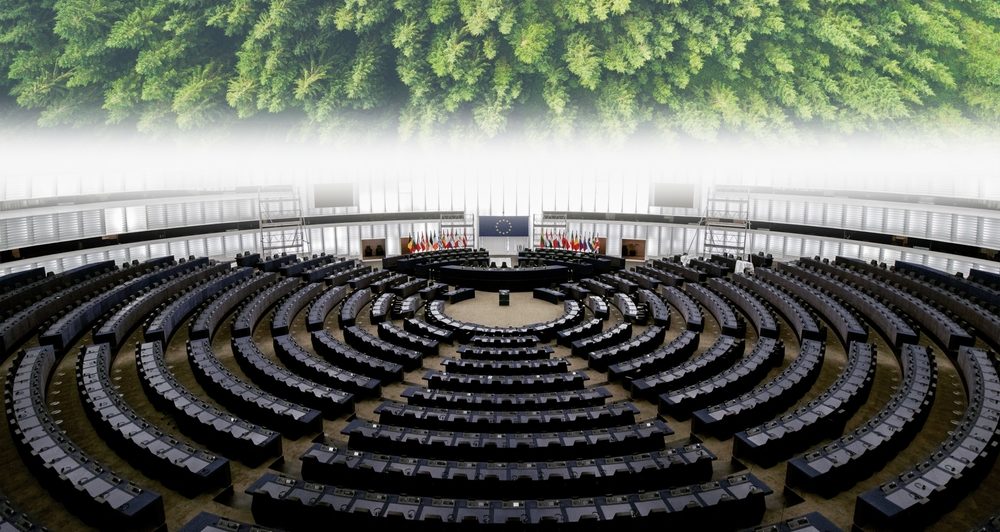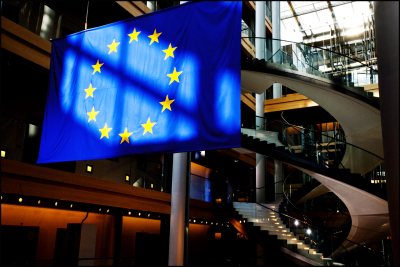Access and download our methodology here.
In the relentless race against time to combat the climate crisis, accountable and transparent policymaking is imperative. Policymakers can’t claim to take climate legislation seriously while possibly working for companies that aim to do the opposite. This is why we at TI EU have conducted a comprehensive analysis of all MEPS that play a key role in drafting Green Deal-related files. The European Green Deal establishes the European Union’s ambitious goal to become the world’s first climate-neutral bloc, legislating a myriad of files.
Expanding on our recent analysis uncovering the conflict-of-interest risk in the European Parliament, we’re now putting all side activities listed in the declarations of financial interests of MEPs involved in drafting Green Deal legislation under the microscope. Side activities can significantly impact the legislation process, as policymakers could put their private interests above that of the public or may provide preferential access to external organisations with which they have a working relationship. Our findings aim to enhance the integrity of the EU Green Deal and fight undue influence in EU legislative processes.
Main findings:
It is vital for transparent policymaking and the future of our planet that these files are exempt from any conflict of interest that might exert undue influence on the legislative process. Yet, disturbingly, our most recent analysis of the declarations of interests by MEPs working on Green Deal legislation has revealed some alarming findings.
A perceived conflict of interest arises from the perception that a side activity might influence an MEP’s work on any given file. This threshold, enforced by a number of EU Member States, could also significantly impact citizens’ trust that their elected representatives are acting in their interest.
- Out of 217 MEPs responsible for Green Deal-related matters since 2019, we have identified 33 activities that could reach the threshold of perceived conflict of interest.
This figure represents 15% of all MEPs involved, which is almost one in six. While a handful have dropped their outside activities in their most recent declarations of November 2023, these activities were still present on their declarations at the time they worked on the files we examined.
The gravity of this becomes even more pronounced when considering how many of the Green Deal files that are part of our analysis involve MEPs with a perceived conflict of interest.
- Of the 34 legislative and non-legislative files under the Green Deal policy area included in our research, 29 procedures had one or several key MEPs involved in drafting legislation with a high likelihood of perceived conflicts of interest.
This represents a staggering 85% of all Green Deal-related files covered by our analysis, illustrating once again the inadequacies of Parliament’s internal rules regarding conflicts of interest. Currently, as long as MEPs are transparent about their outside activities, their only obligation is to recuse themselves from a key role if the activity leads to a conflict of interest. But this rule is not always enforced.
Let’s take a look at an example:
- Among all considered files in our analysis, the “Renewable Energy Directive” stands out, with 3 key MEPs declaring side activities that might influence their legislative work.
- The rapporteur on this file holds an unpaid position on the ‘Energy and Climate Policy Advisory Board and Innovation Council’, an organisation registered on both the European and German lobby registers.
- A shadow rapporteur had, until recently, a paid role as a member of the board of a prominent energy company.[1]
- A rapporteur for an opinion has a paid role working for the Chamber of Commerce of a major European industrial region.
The European Union wants to be the frontrunner in climate legislation and has high aspirations for the years to come. Its institutions are intended to serve as a role model for all member states and the international community. Unfortunately, this is not always the case when it comes to upholding the highest standards of transparency and integrity. This is particularly true for the European Parliament, which recently failed to pass meaningful reform of its internal rules to consistently prevent and manage conflicts of interest.
The perceived presence of conflicts of interest alone serves to undermine the integrity of the legislative process. They serve as stark illustrations of the mismatch between MEPs’ desire to engage in side activities and their potential implications of this for policymaking.
Our analysis now shows the potential repercussions of the European Parliament’s failure to effectively manage conflicts of interest. Compromising the integrity of the legislative process means compromising the EU’s effort to combat the climate crisis. And allowing MEPs to engage in jobs on the side means potentially exposing climate policy to undue influence. The citizens MEPs represent—and the climate—deserve better.
Recommendations:
To remedy the issues raised by this analysis, the European Parliament should enforce a complete ban on side activities for MEPs, with limited exceptions for professions in such sectors as education and health care.
In the absence of such a ban, the following rules should be implemented:
- In case of a perceived conflict of interest, MEPs should not be allowed to hold any office of power related to that conflict, including being a rapporteur or shadow rapporteur on a file.
- Clearer information should be requested in MEP declarations of private interests, such as the field and nature of side activities.
[1] A subsequent declaration of private interest published by this MEP following the adoption of the Renewable Energy Directive no longer showed this activity.






